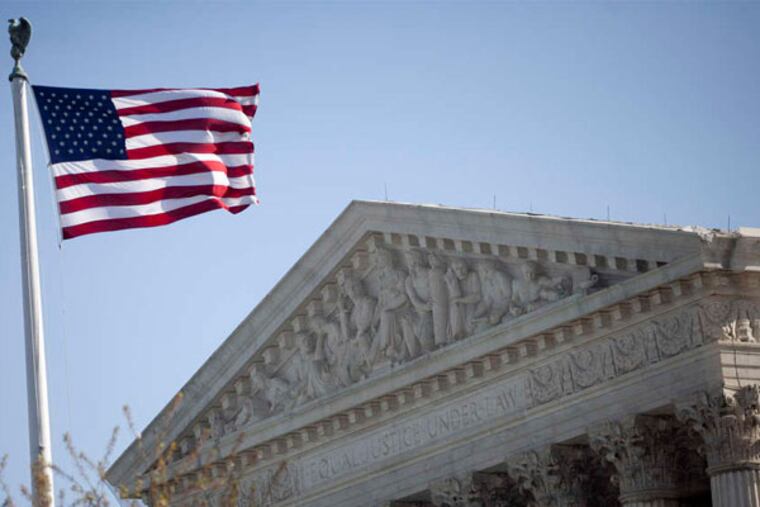Case on Comcast cable customers won't go away
In late March, the U.S. Supreme Court seemed to have plunged a stake into a long-running class-action lawsuit between Comcast Corp. and plaintiffs' attorneys who claimed the company abused its market power to hike cable bills on Philadelphia-area customers.

In late March, the U.S. Supreme Court seemed to have plunged a stake into a long-running class-action lawsuit between Comcast Corp. and plaintiffs' attorneys who claimed the company abused its market power to hike cable bills on Philadelphia-area customers.
The high court voted, 5-4, on ideological lines not to certify the case - forcing it back to a lower court. They said the financial damages for two million TV customers could not be fairly measured throughout the expansive Philadelphia region.
"The permutations involving four theories of liability and two million subscribers located in 16 counties are nearly endless," Justice Antonin Scalia wrote in the majority opinion.
But months later, this legal zombie lives on.
The plaintiffs' attorneys, led by Barry Barnett of the Susman Godfrey firm in Dallas, say they will attempt for a third time to certify a class of damaged Comcast cable customers - promising, if Judge John R. Padova of the U.S. Court of Appeals for the Third Circuit in Philadelphia agrees, more years of litigation in an epic case. It was first filed in December 2003.
"The patient appeared dead but was only on life support," cracked Kenneth A. Jacobsen, professor at Temple University Law School, who dished up another metaphor: "It may be old and it may be the third bite at the apple, but the Supreme Court didn't say [the plaintiffs' lawyers] couldn't do it."
This time, the plaintiffs will include a narrower class of potentially damaged Comcast TV customers: those who live in Philadelphia, Bucks, Delaware, Montgomery, and Chester Counties.
The suit claims that Comcast thwarted a competing cable company, RCN Corp. of Princeton, from expanding into the region by lobbying against it with government officials, offering customers discounts in areas where RCN would expand and restricting RCN's access to contractors who would build out its network.
RCN did not get traction and ran into financial headwinds as Comcast consolidated its market position through nine swaps and acquisitions of cable-TV subscribers, eventually coming to control more than 60 percent of the Philadelphia region's cable-TV homes by 2003.
The plaintiffs contend that RCN competition could have limited Comcast's price increases for TV service. They claimed damages to Comcast's consumers amounted to $875 million. If the plaintiffs won at trial, they could have been awarded more than $2 billion, lawyers say.
With only five counties, the damages are likely to be less than $875 million.
Comcast says enough already.
"Plaintiffs are not entitled to a do-over now simply because the Supreme Court's decision showed that their judgment was wrong," Comcast wrote to the court. The plaintiffs have attempted, the company noted, to support their case with 16 or 17 expert reports over the years.
The case has been litigated so long that the lead customer dropped out. First called Behrend v. Comcast, it's now Glaberson v. Comcast.
The case has fallen off the national legal radar since the Supreme Court decision. But Nick Even, an attorney with the Haynes & Boone firm in Houston and not associated with the case, said that if Padova "decides to recertify the class . . . that would definitely catch everyone's attention."
Padova seems to be handling the case's duration with wry humor. Said the judge in June, "We have on the court's calendar this afternoon a status conference with respect to this very, very interesting case which has been with us for some time now."
215-854-5897
@bobfernandez1